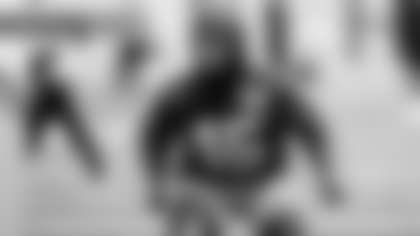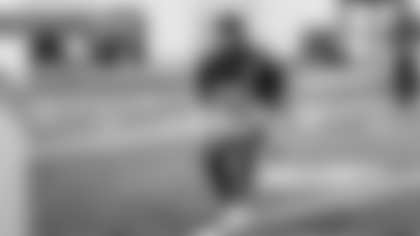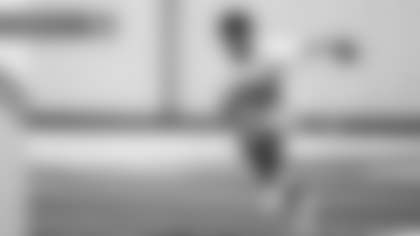The Packers' failures in short-yardage situations early in Sunday's game against Chicago were the one glaring weakness in an otherwise solid performance on the ground.
After taking a look at those crucial plays on film, players and coaches noted the mistakes were not wholesale breakdowns by the offensive line, but relatively simple mis-steps that made the results all the more frustrating.
But when all that's needed is a yard, or even less, to get a first down, even the smallest mistake can prove costly, and several of them occurring in succession in the first half had a profound effect on the Bears' 26-0 shutout at Lambeau Field.
"The third-and-shorts, those were very disappointing," center Scott Wells said. "Usually it was one guy here, one guy there, breaking down fundamentals. It wasn't really assignments, it was fundamentals. You take a bad step, footwork, or whatever. If you correct those things and keep the drives going, it's a whole different ballgame."
No question a short-yardage conversion or two would have changed the way the game unfolded.
To recap, on the Packers' first series, a third-and-1 handoff to Ahman Green was stuffed by Lance Briggs. On the next possession's third-and-3, quarterback Brett Favre was stepped on trying to drop back at the snap by left guard Jason Spitz, who overstrided in pass protection, resulting in a sack.
Then, on drive No. 3, Green was stopped by Tommie Harris on third-and-inches, and Favre's fourth-down sneak failed when right guard Tony Moll simply came out of his stance too high.
"The first one we didn't get the back side cut off, and that's such an important thing in what we do," offensive coordinator Jeff Jagodzinski said. "The one Favre got stepped on, on a three-step drop, that was wide open. There were two, three guys open on that play that could have resulted in a first down. And then the quarterback sneak, we allowed some penetration, and that can't happen on fourth-and-inches.
"We put ourselves in position early in the game to have third down, manageable situations, but we didn't execute."
The errors were small, but the impact of those plays on the game was huge. The first two came with the score just 7-0, while on the third series it was 10-0, manageable deficits to be sure. But after the turnover on downs, the Bears drove down for a field goal, recovered a fumble on the ensuing kickoff, and kicked another field goal. It was 16-0 before the Packers got the ball again.
At that point, the Bears had run 39 plays to the Packers' 11 (not including punts), and Chicago's time of possession was 18 minutes, 36 seconds, to just 6:46 for Green Bay.
The game wasn't over by any means, but control was so firmly in Chicago's grasp it became a monumental task to tear it away.
"That was really the downfall of our first half," Head Coach Mike McCarthy said.
Jagodzinski said the short-yardage execution will be addressed in practice this week. After the film review Monday the players, albeit frustrated, were confident the problems would be fixed.
"Those are all things that can be corrected, and I think they can be corrected this week," Wells said. "So I think we can see a huge improvement from Game 1 to Game 2."
Jagodzinski hopes to be able to say the same thing for the running game as a whole. Though the Packers topped 100 yards and averaged 4.5 yards per carry as a team, Green had just two gains longer than 7 yards until the final minute of the third quarter.
"There were chances," Jadodzinski said. "We left a lot of yards on the field. We had a chance to have some breakout runs, but it was one guy here, one guy there on the backside to get a guy on the ground, and you have to be able to do that.
"I'm confident this run game still start clicking. We're close."














